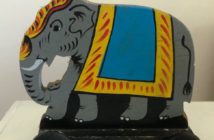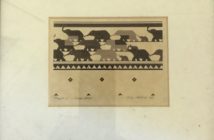Tomorrow Friday 22nd March 2019 New Zealand will observe two minutes silence to remember New Zealanders killed during the murderous, terrorist atrocity on Friday 15th March 2019 in the city of Christchurch.
 I haven’t cried for a long time. Such a long time. I can’t remember the last time. But I remember why I cried last week.
I haven’t cried for a long time. Such a long time. I can’t remember the last time. But I remember why I cried last week.
I was reading “275 Love Letters to Southside” by Aigagalefili Fepulea’i-Tapua’i a Year 11 student at Aorere College and her age-range winning poem in the 2018 National Poetry Day competition. She’s a much better poet than I am. Her words cut me so quickly. I am able to be hurt because I know where she is talking about and what her words say about me and New Zealand society.
“Aren’t I lucky I was not born when the dawns were raided….I’ve lived my life growing up in classes where I had more friends with no lunch than friends who were eating… Auckland is not the same place as South Auckland…”
Forty or fifty years ago my teacher father went to work each day in South Auckland with two lunches: one for him and one for the kids with no food. My son’s privileged school takes them next door to Otahuhu College. He comes home and quietly says “they have nothing…” My client cries as she tells me how much her teenage son can eat for afternoon tea, and she cannot afford it. This is New Zealand and this is the south of Auckland: the city’s food bowl. And it’s all got so much worse since then.
In 2017 the New Zealand Labour Party said:-
“New Zealand is a country built on immigration. Migrants bring to New Zealand the skills we need to grow our economy and vibrant cultures that enrich out society.
We have always welcomed migrants to our country, and will continue to do so. But in recent years our population has been growing rapidly as record numbers of migrants arrive here. This has happened without the Government planning for the impact immigration is having on our country. After nine years, National has failed to make the necessary investments in housing, infrastructure and public services that are needed to cope with rapid population growth. This has contributed to the housing crisis, put pressure on hospitals and schools and added to congestion on the roads.”
This is the main reason I did not and do not support more recent significant levels of immigration into New Zealand. Not because of a migrant’s skin colour, ethnicity, country of origin or religion, but because of the easily observable worsening circumstances of the least affluent of our society. I stumble and stutter as post-Christchurch I try to explain this to my friend as her eyes narrow and her face hardens and she asks “What is your point?” I tell her I always thought a social revolution would erupt from the wastelands. The land where we waste people and talent.
A wise Jewish woman told me “we only cry for ourselves”. And this is the reason I am made uncomfortable by the sudden appearance of observable numbers of ethnically different residents. It provokes more and more direct racist comments from the wider New Zealand communities. They say them to me because I look and sound just like them: my ethnic heritage has almost been washed away; you need a DNA test to find me out and any accent I have is imperceptible.
I’m the only member of my now immediate family not to have been born here and one of the few migrants in my much wider and contemporary New Zealand extended family. Why is that so funny? I married into a New Zealand family which is ethnically Indian. But it’s him, the bacon-eating, football playing, horse-race following, fishing-mad, jazz-loving law student him, they always asked “and where do you come from?” Over the years it gets boring so in the end we say “Ponsonby”. When in 2017 a young Maori man tells him “go back where you came from…” that’s what he says – “Ponsonby, I’d love to!”
At the Playcentre a woman tells me how lucky I am my children are “so pale”. “Mummy am I rich bitch with Samoan eyes?” “Where’s your dairy?” “Step into this little airport room so we can search you” “is this your car?” “someone spat at me” “Where do you come from? Whakamarama. No, where does your name come from?” Why does some woman I’ve never met before start ranting on to me about the Tauranga Anglican Church’s apology to Maori? “Don’t I agree homeless people in South Auckland should move to Gisborne?” “Why can’t the unemployed in South Auckland go to Hawkes Bay to pick fruit?” “People choose to live on the streets”. My fear didn’t appear because of Christchurch. Christchurch intensified my fear. And that’s the second time last week I cry – I’m crying for myself.
We’ve always frightened each other, abused each other, hated each other and killed each other. Christchurch is not our first massacre but we call Te Ranga and Parihaka history. I won’t be going anywhere other than here. But I’m not going to pretend that our country is a place of unmitigated love and tolerance. I’m aware of what we are. I’m aware of how intolerant, unequal and nasty we are. But of all the places in the world, we have the power to sort it, so long as we don’t pretend.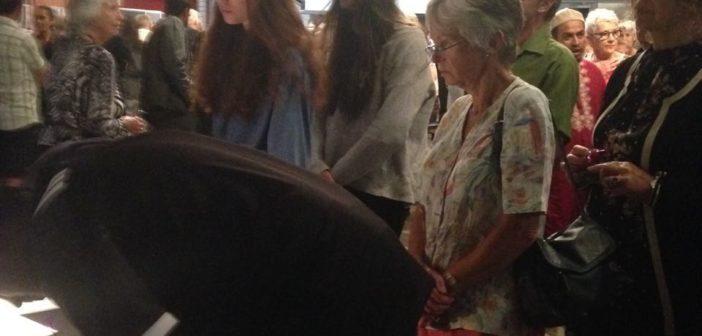
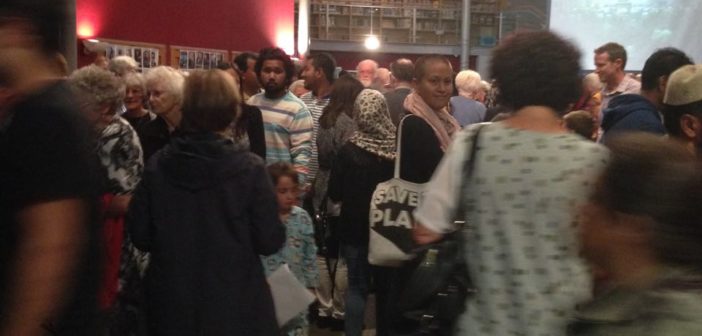
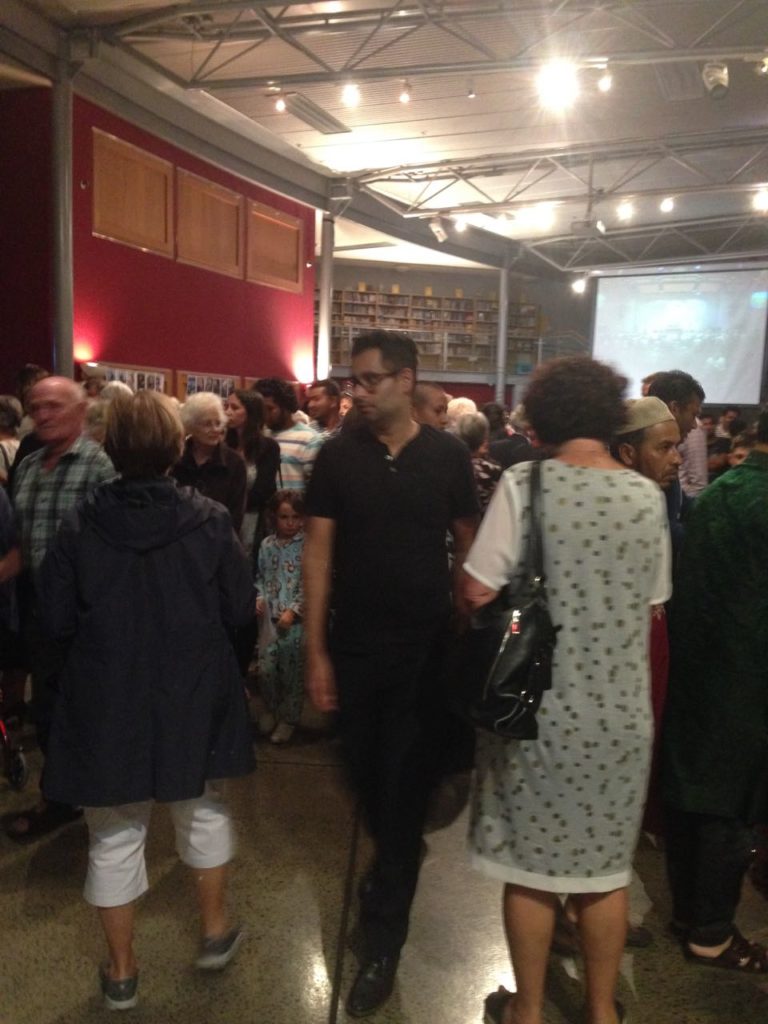
 Images from the vigil held on Monday 18th March 2019 at The Holy Trinity Church, Tauranga, Bay of Plenty
Images from the vigil held on Monday 18th March 2019 at The Holy Trinity Church, Tauranga, Bay of Plenty
Notes: 1. “275 Love Letters to Southside: Aigagalefili Fepulea’i-Tapua’i, Unleash the Power of Poetry August 2018 You can read all of this poem and other 2018 winning poems through a link on this site. https://www.masseypress.ac.nz/news/2018/august/poetry-new-zealand-yearbook-student-poetry-competition/
2. I have reversed the order of the sentences. In the poem they read:
“Auckland is not the same place as South Auckland…Aren’t I lucky I was not born when the dawns were raided?…I’ve lived my life growing up in classes where I had more friends with no lunch than friends who were eating…”
Although written over more recent years, many of my poems are influenced by the people and issues I’ve experienced and observed in South Auckland
The Immigration Man early evening raid
When I open the door there is
a middle-aged pakeha man standing
with an authoritative smile on his face
He wants to come in. He smells
of alcohol which he breathes towards
me as he explains he’s the immigration
man. Where is the overstayer we sponsored.
I explain we’ve just bought this
mustard-coloured small Papatoetoe house
and I haven’t sponsored anyone.
He won’t go away. He wants to come in and
see where I am hiding the overstayer.
He is wearing the uniform of the bureaucrat –
flannel trousers, shirt and tie and sports jacket.
His whisky breath speaks with a Scots accent.
I won’t let him in my house.
I call my husband.
My small brown husband joins me
at the door and he explains we are the new owners. We have not sponsored anyone.
We have not sponsored a Polynesian overstayer. We are brown but we are good.
He won’t go away. He insists this address is
responsible for an overstayer.
We tell him again that we are the new owners.
Perhaps the old Scots people who sold us the house sponsored an overstayer.
He won’t go away so we let him
in our house.
He goes into every small room
of our first little house.
We don’t have a new kitchen
and we haven’t painted
the walls yet – we’ve only just moved in.
He looks in the empty sunroom –
He looks in the cupboards to make sure the overstayer has not curled himself into a ball
at the knock on the door.
He goes away leaving the faint smell
of whisky intrusion.
Do not forget the dawn raids!
There is no snow in South Auckland
She can feel their animosity and disgust as it seeps out of
the dark tinted windows of the Remuera-black SUV
She wonders how it came to be sitting so still in the middle
of the Manurewa shops – another motorway pile up or the
Kingitanga on the move?
She repositions her backpack – too big and heavy now for
the old woman that she is and continues slowly past the
dollar shops their plastic-bright windows spilling out towards
last night’s benches. She no longer notices the dirt and
rubbish she needs another place to sleep.
Last night she’d huddled in her temporary nest under the
decrepit back steps of the house opposite the cop shop –
better than the Plunket deck. No one could see her and despite
the careless cold she’d slept. She’d slept secure that tonight
she was unseen and the big rubbish bin cut out the wind.
The thin and wrinkled face of the old curry muncher woke her.
She has difficulty associating the Kiwi-voice and well-cut hair
with his curry-brown skin. She can tell he’s frightened by her
presence and then he’s angry that she dares breathe his
privately-owned air. He shouts her out as if chasing next door’s
cat or dog away from his hydrangeas.
With historic speed the Warehouse-blue tarpaulin is cast off.
Hurriedly she rolls her bedding and shuffles up the drive leaving
the persistent mutterer and complainer to remove her cardboard
bed-base.
The urge to piss overwhelms her – shame the curry caught her
before she had time to explore the space behind that big garage.
Not allowed in Macas – it’s her smell they say puts the customers
off their food.
She’s been trespassed from the shopping centre – not her fault –
she forgot to take those palagi-pakeha pills. The Library doesn’t
let you sleep and you cannot sit upright with your eyes closed –
they yell into your face until you leave.
Methodical and rhythmically shuffling down the Great South Road
she goes towards the cold twilight of the park to out wait another
day remembering the Aitutaki blue-bright skies, the rock hard soil
of Karaka, the shouting and laughter of Otara teamwork as they
pull and clip uniforms and school shoes.
Most of all she remembers the penetrating smell of onions on your
skins as you lie together sleeping under the fence’s quiet and forgiving
wall.
She knows – there is no snow in South Auckland
ANZAC Day 2015
I do not have your medals to
wear in a parade and skite
I am the child of a returned man
You would ridicule me anyway
I do have the legacy you have given
me the ability to create and you
would want me to wear that and
parade that as the child of a returned man
You would want me to speak out
against corruption. As a child
I never understood what you meant
“the gangsters rule the world”
I listen to the toned speech of Suzy
Ferguson who is moved by the young
deaths she sees at Gallipoli
Who is moved by the 14 year old
prostitutes in Hunters Corner –
those we don’t see.
Collateral Damage
I sip my pinot noir
red
blackberry notes
they are investigating the
incident – collateral damage
burned to death in hospital
beds – an accident of war
she would tell me how you
cried late at night for the
women and children
you had killed – collateral damage
collateral damage – white ribbons
as we kill our own
in our homes
pinot noir
delicious
red
blackberry notes
It’s so nice….
Where does that name come from?
From my New Zealand-born husband
who married migrant me.
He shouts and shouts the name as the trolley squeaks down the mirrored Middlemore-lino floor.
He turns into my room and gawps.
As he pushes me along he justifies his shock
“we don’t get many white faces in here”
Her blond curls bob as she smiles her round white teeth
“Aren’t you lucky your children are so pale”
I smile but I cannot let it pass me by
“Nah, they go black in summer”
And my word-knives fly back towards her heart
I tell my tiny, children
not to get sunburned
“they’ll deport you”
they are bewildered
I give the overweight, middle-aged Pakeha receptionist
their details, cold-eyed, she spits at me
“And who are you?” It’s the tone.
I cannot help myself as I feel my armour, that small, hard, half-smile I use, descending over my face
“I’ve got news for you, I’m the mother”
But in my head I complete the sentence
“I’ve got news for you; I’m the mother and fuck you”
The beautiful kindergarten daughter kicks my soul as she enquires,
“Mummy am I a rich bitch with Samoan eyes?”
The new kid at school shouts. “Hey where’s your dairy?”
He understands immediately what that feral white kid’s trying to lay on him.
“Don’t be silly his father’s a lawyer”
Leaning on a kitchen door my small, six-son, grave and thinking,
tells me his country, childhood friend doesn’t know or understand racism
but he does.
“It’s so nice to speak to a white person”
she says to the unseen, well-spoken, student son
He needs the works so he says nothing
I wonder if he completes sentences in his head?
Who owns this car?
Who owns this van?
Is this your bike?
the cops ask the young brown man
I’m white, DWB on the streets of Auckland doesn’t touch me
I’m ostensibly white so you don’t have to be afraid of me
She’s come home to see if it would be okay
in the Manukau City carpark someone spits at her
it’s not her Samoan eyes
She goes back to Australia the land of the free and overt racism
because she feels more comfortable there
We blame you for trying to steal a handbag for food?
We never blame persistent poverty those unremitting drips of racism into your soul
We never blame the dirty streets, the graffiti or the lack of access
We blame computer games
We blame your parents
We blame drugs and we blame alcohol
But you, you could have taken the car. You could have taken the bag,
the phone, the cards, the keys
You didn’t have to beat the woman, smash her face and confidence
make us look over our shoulders every time we go out
You imprison all of us in our fear of you
The space between
I stand in the space between
inexorably anchored by
your smiling brown eyes
Rosemary Balu. Rosemary Balu is the founding and current Managing Editor of ARTbop. Rosemary has arts and law degrees from the University of Auckland. She has been a working lawyer and has participated in a wide variety of community activities where information gathering, submission writing, community advocacy and education have been involved. Interested in all forms of the arts since childhood Rosemary is focused on further developing and expanding multi-media ARTbop as the magazine for all the creative arts in the Bay of Plenty, New Zealand.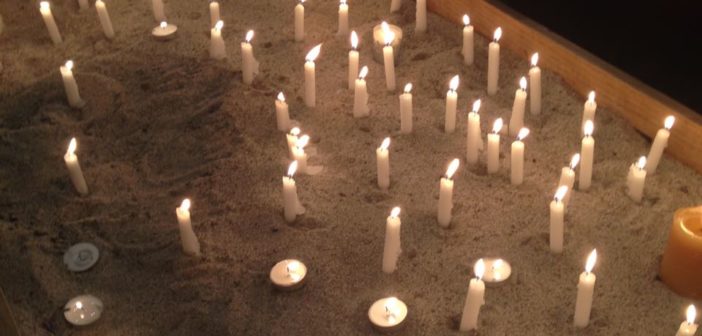
Articles written by Rosemary Balu which comment on contemporary New Zealand
01-03-2015 Tauranga Public Art Talks: Think, Make Activate Includes the Auckland “Design Champion” and wonders whether the “artification” of Auckland will really extend to South Auckland.
02-01-2016 Killing Christmas: no more noels. Suggests that minimizing Christian-related activities and festivals is counter-productive to encouraging comprehensive inclusion, tolerance and acceptance of diversity.
29-06-2017 Show me the Money: keep it simple New Zealand’s peculiar approach to its need for social service funds
05-01-2018 If you want to belong here: the value of Te Reo Maori Comments on the on-going denigration of Maori language and culture
10-04-2018 Old White Men: Pakeha Kaumatua At its conclusion notes real, continuing, contemporary issues for New Zealand’s justice system
28-02-2019 An occasional Conversation with TJ McQuilty: the other way A satirical comment on contemporary New Zealand attitudes and social issues.
If you have information about an upcoming arts event, exhibition or arts news you can contact ARTbop at info@artbop.co.nz
ARTbop
the Bay of Plenty’s creative arts magazine!
read us online anywhere, anytime!



